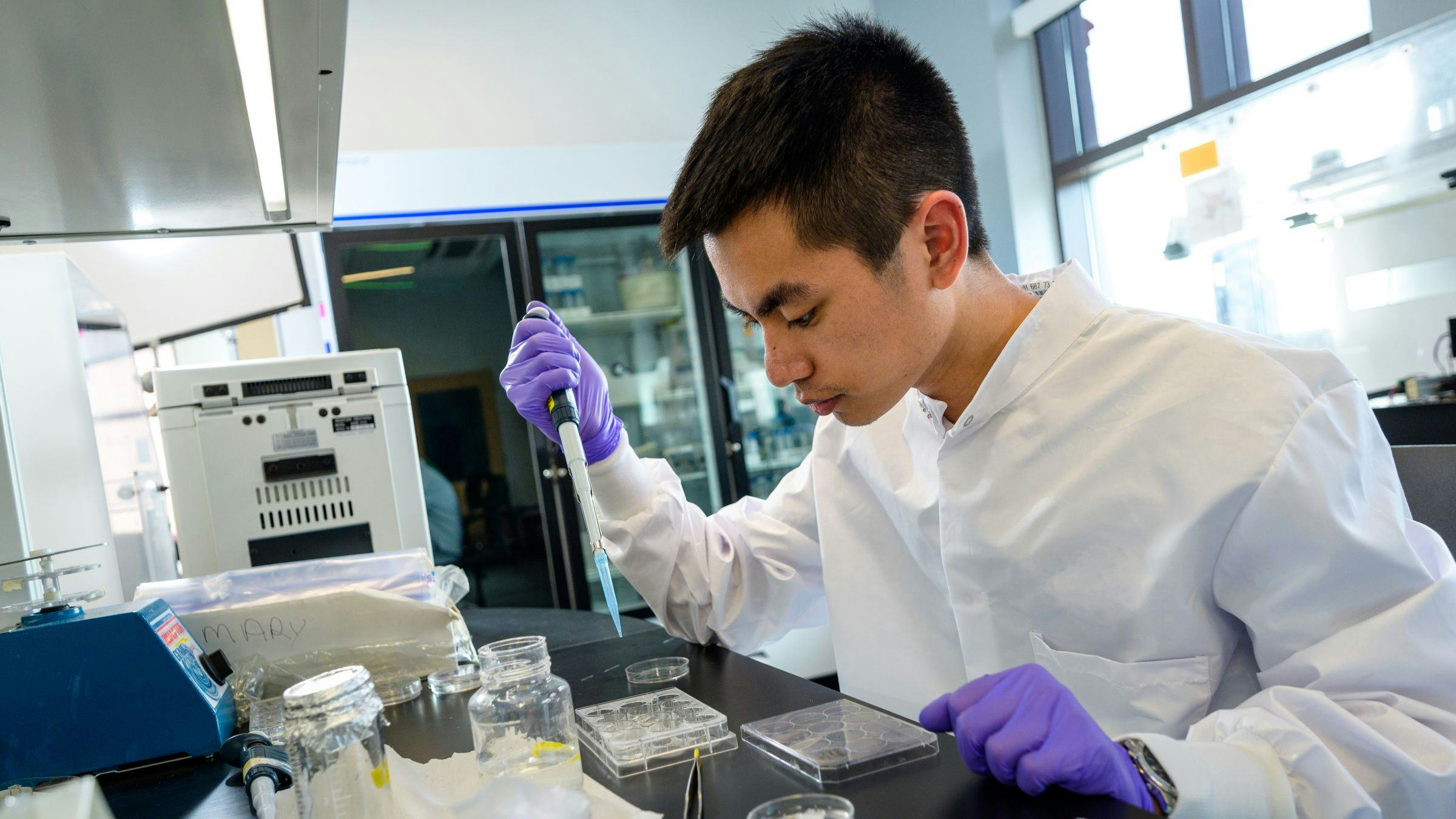Stevens conducts leading-edge research in a range of critical disciplines, including particular focus on seven specific foundational pillars.
Each of Stevens' research pillars represents an interdisciplinary domain in which the university engages with diverse collaborators, both internally and externally, in dynamic partnerships that further both fundamental and applied research, creating new knowledge for the benefit of society.
Our work in these domains helps protect local communities from extreme weather events and the effects of long-term climate change; develops novel healthcare products, systems and applications; explores the frontiers of AI, quantum science and drug discovery; develops novel materials and sensors for use in safer, lower-impact building and bridge infrastructure; and innovates filters for heavy metals, toxic materials and 'forever chemicals,' among other research.







